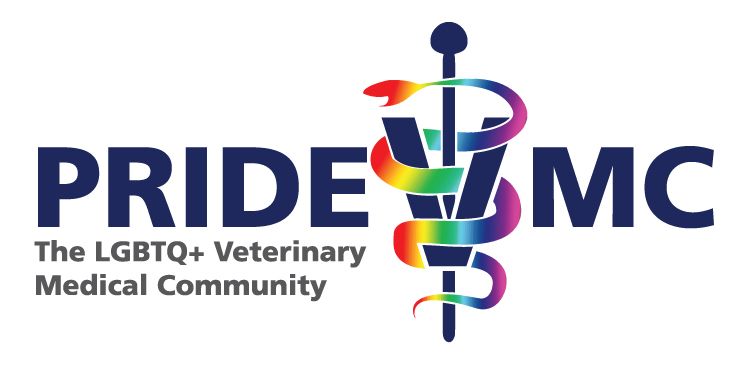
- dvm360 November 2023
- Volume 54
- Issue 11
- Pages: 50
How to leverage allyship to create more inclusive cultures

If a workplace or any environment is inclusive, then those who work there or visit will feel that they belong
Inclusion refers to behaviors and social norms that ensure people feel welcome. Belonging is feeling accepted. When it comes to talking about creating an inclusive culture, there is so much to discuss. But what do the data say?
According to Deloitte,1 organizations with inclusive cultures are twice as likely to meet or exceed financial targets, 3 times more likely to be high performing, 6 times more likely to be innovative and agile, and 8 times more likely to achieve better business outcomes. More recent data show that inclusive organizations are 73% more likely to reap innovation revenue, 70% more likely to capture new markets, up to 50% more likely to make better decisions, and up to 36% more likely to have above-average profitability.2
The importance of inclusivity is indisputable, so how do we create more inclusive cultures? One way is to make space and provide resources for all team members to develop their powers of allyship. Allyship in its most basic sense is a strategic mechanism that individuals use to become accomplices, collaborators, and coconspirators who fight injustice and promote equity within the workplace through public acts of support and personal supportive relationships.3
Allyship originates from a place of solidarity, not from identity, and is always active, never passive. One of the beautiful aspects of allyship is that it is fluid based on the context of a given situation and who is in the room. In one scenario you may be serving as the ally, and in another you may be the beneficiary of allyship.
Regardless of the situation, we strengthen our allyship powers by being intentional with the following 4 elements of allyship.
Educate yourself
It is up to each of us to educate ourselves; it is not the job of those who are oppressed or marginalized to educate those who are not. Diversify what you read and watch and do the same for the children in your life and others you could influence.
Be accountable
Get comfortable with being uncomfortable and leverage your privilege. Show up, stand up, and speak up to leverage the power that comes with privilege or advantage. This is not always easy, but do it anyway. We know that when we step out of our comfort zone we are in the space of optimal learning, growth, and impact. It is a good place to be, even if it is a little scary. There are myriad ways in which we can show up and help to be part of the solution by creating warm, welcoming, inclusive environments. It starts with caring. It starts with caring about those who are different from us, learning from them, and then creating an environment and culture that welcomes and celebrates those differences.
One of the many simple and effective ways that we can increase the inclusivity of our culture and workplace includes adding pronouns to our name badges, email signatures, and Zoom profiles. We can also consistently introduce ourselves with our pronouns and share the languages that are spoken in our workplace. Professionals can also use
the terms parent or caregiver instead of mom or dad, and humankind instead of mankind. Instead of saying boys and girls, consider using children or everyone. Also, ensure the images on your walls and website are diverse.
Promote inclusivity
Allyship centers on the oppressed. Constantly reaffirm that allyship centers on the marginalized, not the ally. Avoiding performative allyship on social media is an important part of this. For example, if you choose to highlight artists from marginalized groups on your Instagram account, check yourself and make sure you are doing it to be an authentic, active ally and not to garner more likes or followers.
Be intentional
Be all in and fully commit to being an ally even if you are not certain you fully understand everything. If we realized the number of things we do not even know that we do not know, we would likely be paralyzed with fear. Do not let this fear hold you back. Fully commit to being an ally, even if you are afraid.
What if I make a mistake?
One of the most common fears of leveraging allyship to create more inclusive cultures is the fear of making a mistake. We do not want to intentionally harm another person; that is a good instinct and rooted in kindness. However, if you do not make a mistake on your journey to being a better ally, then you are not all in. Mistakes will happen because you are pushing yourself beyond the edge of your comfort zone. When a mistake happens or you overstep the mark, apologize genuinely then learn from it and move on. Do not become so mired in guilt and shame that you stall and inadvertently turn all the attention on yourself. Guilt and shame are useless. Apologize, learn, and move on. You’ve got this.
Mia Cary, DVM, is a 1999 graduate of the University of Florida College of Veterinary Medicine in Gainesville. Her personal and professional purpose is to activate others to thrive, which she accomplishes through speaking, meeting facilitation, association leadership, coaching, and customized consulting projects. Her professional experience includes executive leadership and education roles at the American Veterinary Medical Association, the North American Veterinary Community, Boehringer Ingelheim, and Novartis Animal Health. She currently serves as CEO and change agent for Cary Consulting, CEO for the Pride Veterinary Medical Community, and member of the Dean’s Advisory Board at Tuskegee University College of Veterinary Medicine in Alabama. She also is a certified QPR Gatekeeper Training instructor. She resides with her family, the Cary Crew, in Greensboro, North Carolina, and recognizes the Eno, Sappony, and Shakori nations on whose land she lives and works.
References
1. Bourke J. The diversity and inclusion revolution: eight powerful truths. Deloitte. January 22, 2018. Accessed October 6, 2023.
https://www2.deloitte.com/us/en/insights/deloitte-review/issue-22/diversity-and-inclusion-at-work-eight-powerful-truths.html
2. Zheng W, Kim J, Kark R, Mascolo L. What makes an inclusive leader? Harvard Business Review. September 27, 2023. Accessed October 6, 2023. https://hbr.org/2023/09/what-makes-an-inclusive-leader
3. Melaku TM, Beeman A, Smith DG, Brad Johnson W. Be a Better Ally. Harv Bus Rev. Published online November 1, 2020. Accessed October 6, 2023. https://hbr.org/2020/11/be-a-better-ally
Articles in this issue
about 2 years ago
Shocked? Extracorporeal shockwave therapy offers many benefitsabout 2 years ago
Holiday gift ideas for pets and professionalsabout 2 years ago
Enrichment never gets old: Why senior pets need stimulation tooabout 2 years ago
Is your practice seeing enough senior pets?about 2 years ago
The spectrum of care with Emily M. Tincher, DVMabout 2 years ago
Hire attitude and gratitude...train aptitude!about 2 years ago
Nonpharmacologic management of canine osteoarthritis: Part 1about 2 years ago
Kick off 2024 with a Fetch dvm360® conference in CharlotteNewsletter
From exam room tips to practice management insights, get trusted veterinary news delivered straight to your inbox—subscribe to dvm360.





